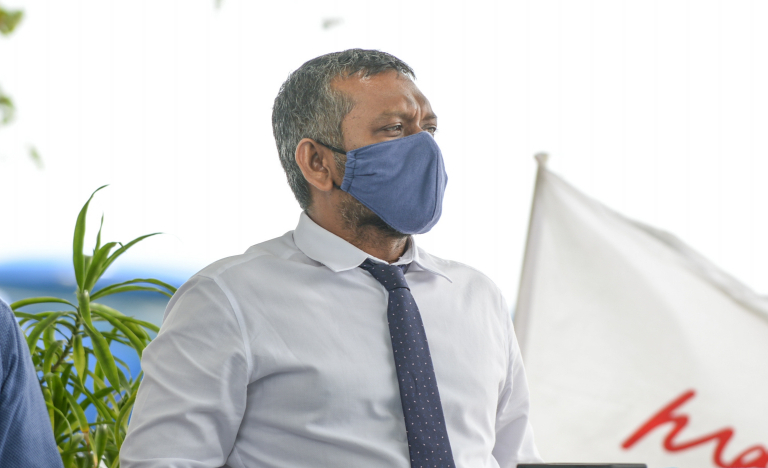Male’, Maldives – Economic Minister Fayyaz Ismail has that that the right to sue for defamation should not be available to those elected and appointed to state positions including those of the Executive, Legislature, Judiciary and Independent Bodies.
He said that the right to sue for both defamation and libel should be open for normal citizens and that the only right to for the state officials should be to sue for an apology and correction of a false statement but no right to damages. By taking up such positions you are accepting such accusations in the broader interest of protecting free speech democracy.
His remarks come as the government is preparing to send the Anti-Defamation bill to parliaments current session while the government has said that it’s merely a bill which gives constitutional power to the existing guideline which is being followed now which puts defamation as a civil offense.
The criticism toward the defamation bill arose within the public as soon as the Attorney Generals Office has announced that it’s one of the bills they were sending to the parliament soon, as previously during Former President Abdulla Yameen Abdul Gayoom’s presidency had passed a Defamation Act which narrowed down the freedom of expression and which was used to heavily fine local medias for criticizing the government and it’s officials. The current administration said that they had no intention of using the defamation bill as a source of income to the government through fines as how it was used before.
Passed in August 2016, the Act was widely-condemned in Maldives and by international parties as it introduced hefty fines and jail terms for journalists and individuals found guilty of slander. The 2016 law was abolished in November 2018 with 38 votes in favor of it and 13 against with 51 members present from the 85-member house. Medias and others in Maldives labelled the 2016 Anti-defamation law as draconian and merely a tool to suppress freedom of expression.





